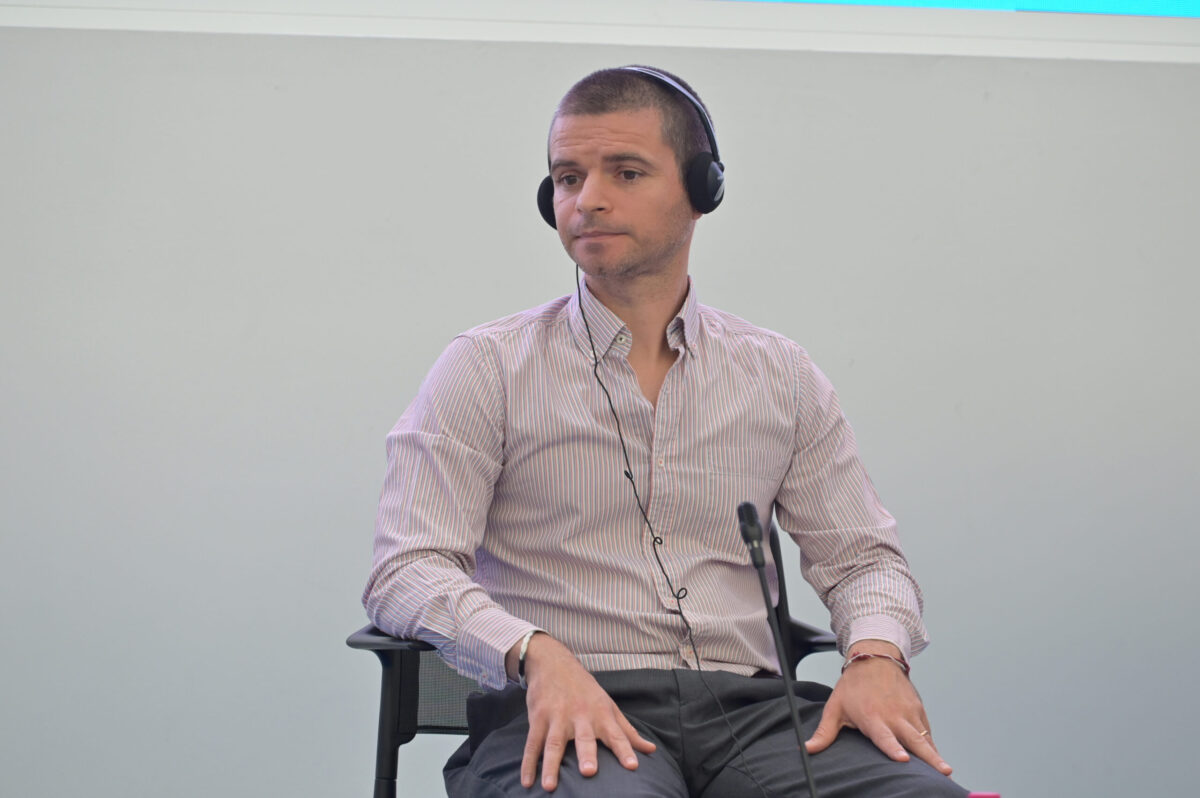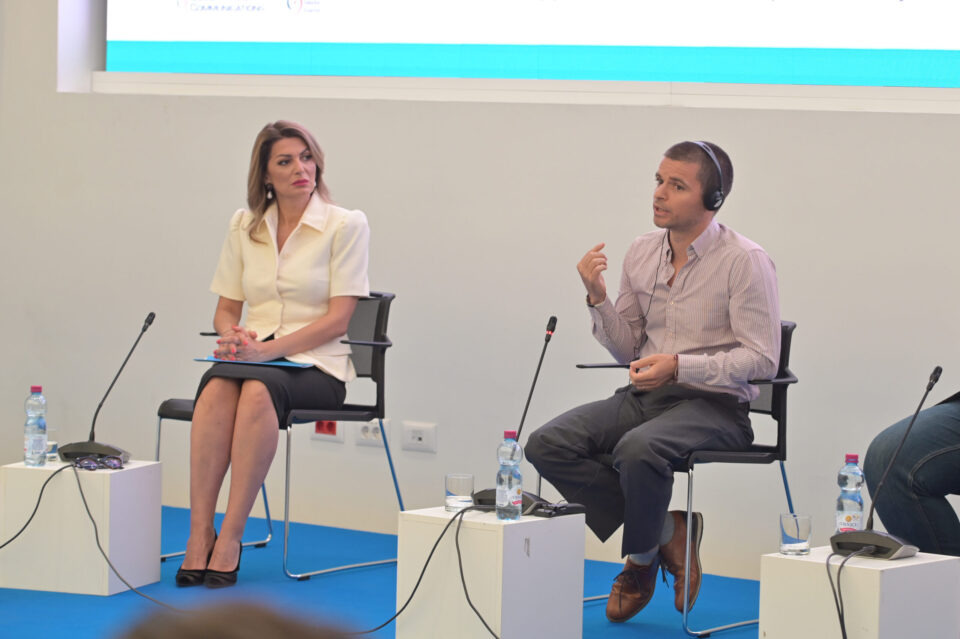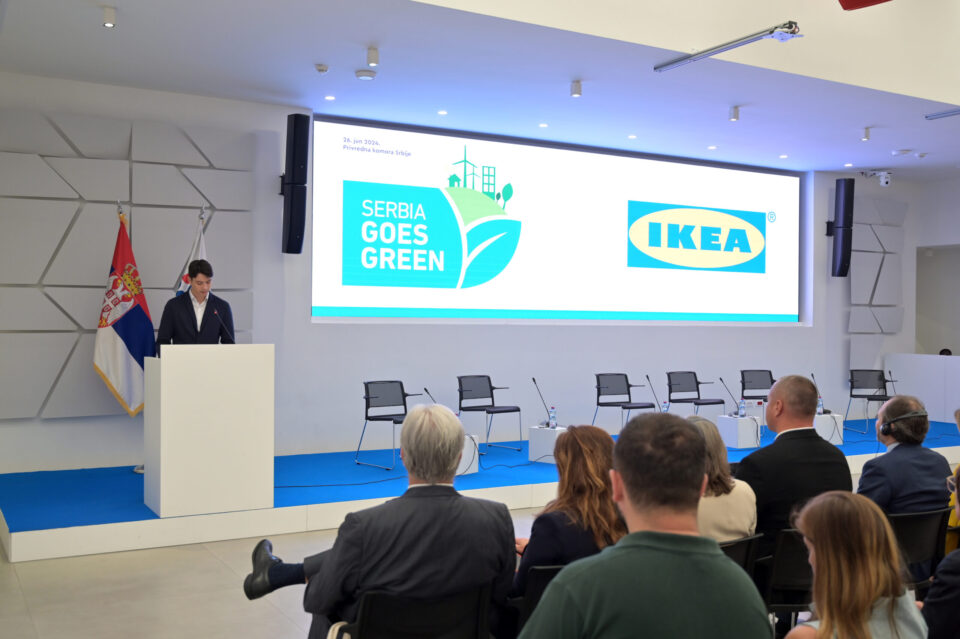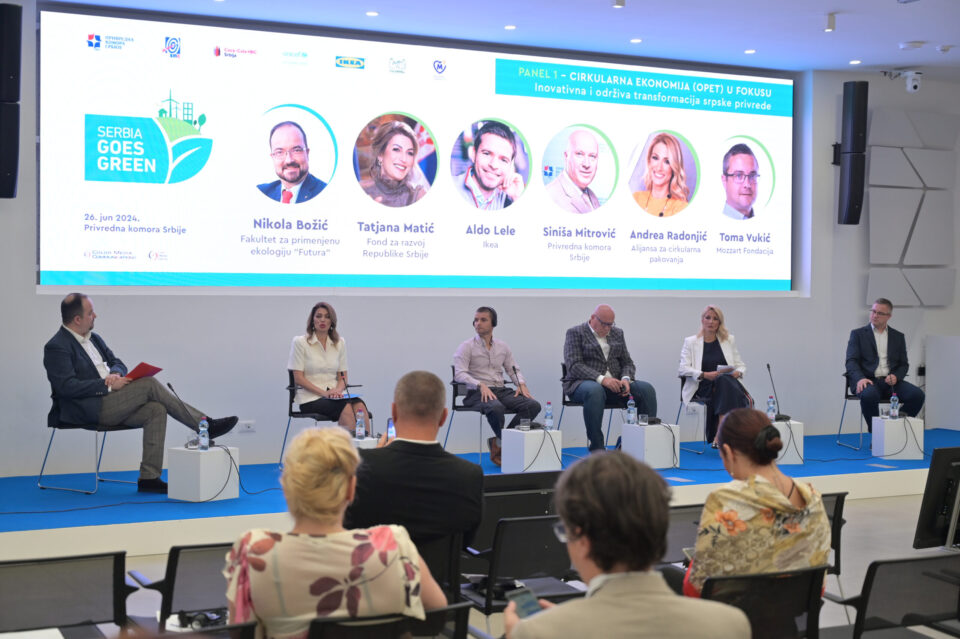IKEA South East Europe fosters a positive impact on the communities and ecosystems
 During the annual Serbia Goes Green conference, key stakeholders gathered to discuss the urgent need for further sustainable development and the strategies required to tackle climate change. During the panel discussion dedicated to environmental protection and nature conservation, collaboration between the private and public sectors was emphasised as crucial in achieving a climate-neutral future. Aldo Lele, Sustainability Manager at IKEA South East Europe, was one of the participants who highlighted the importance of the circular economy for sustainable development.
During the annual Serbia Goes Green conference, key stakeholders gathered to discuss the urgent need for further sustainable development and the strategies required to tackle climate change. During the panel discussion dedicated to environmental protection and nature conservation, collaboration between the private and public sectors was emphasised as crucial in achieving a climate-neutral future. Aldo Lele, Sustainability Manager at IKEA South East Europe, was one of the participants who highlighted the importance of the circular economy for sustainable development.
Following the conference, we had the opportunity to further discuss with Aldo and explore IKEA sustainability initiatives, specifically focusing on reducing environmental impact, implementing circular economy practices, and fostering community engagement.
 For many years, IKEA has recognised the impact of its operations on the environment and taken action to minimise that impact – what is IKEA’s approach to sustainability, and how it is integrated with the core of your business?
For many years, IKEA has recognised the impact of its operations on the environment and taken action to minimise that impact – what is IKEA’s approach to sustainability, and how it is integrated with the core of your business?
At IKEA, sustainability is not just a part of our business strategy; it is the core of how we operate and grow. The IKEA sustainable approach across our business is defined in a clear strategy that we call People and Planet Positive, which ensures that our business practices are environmentally sound, socially responsible, and economically viable.
This strategy emphasizes that what benefits the planet and people is inherently beneficial for our long-term business growth, grounded in the belief that environmental, social, and economic factors are deeply interconnected. When one suffers, the others are inevitably impacted.
One of our primary goals is to manage natural resources sustainably
One of our primary goals is to manage natural resources sustainably, enabling customers to opt for circular products made from recycled materials or specific products that help care for and prolong the life of their goods, or even use circular services where customers can sell us back their old furniture instead of throwing it away.
Beyond environmental initiatives, IKEA places a strong emphasis on social responsibility, dedicating ourselves to improving the lives of the most vulnerable communities in the areas where we operate by creating job opportunities and ensuring sustainable income for those in need.
This holistic approach ensures that our efforts are not only impactful but also sustainable in the long run. The name of People and Planet says it all: If it’s good for the planet and the people, it’s good for our long-term business growth.
 What are your goals in the coming period when it comes to circular business and environmental protection?
What are your goals in the coming period when it comes to circular business and environmental protection?
Our goals for the upcoming period focus on advancing circular business practices and enhancing environmental protection. By 2030, we aim to halve greenhouse gas emissions across our entire value chain compared to 2016 levels, while also decoupling our growth from resource use.
That’s why we are focused on three areas – firstly, raising awareness among our employees and local communities about environmental challenges and their impact on health and quality of life, and promoting sustainable living practices. Secondly, we are committed to reducing water and energy consumption while increasing the waste recycling rate. For instance, our Belgrade store collects rainwater for toilet flushing and generates 20% of its electricity through onsite solar panels. We also prioritize energy-efficient systems to align with the goals of the Paris Agreement on CO2 emissions reduction. Thirdly, mitigating our stores’ impact on soil and water by fostering biodiversity and restoring natural habitats. This includes establishing sustainable biodiversity gardens at our stores to support native plants and insects, promoting ecological resilience and biodiversity conservation.
Additionally, we are also aware that more than 40% of our emissions are generated in the extraction and transformation of raw materials, so we must continue to increase the use of recycled and recyclable materials. And all to reintegrate those same used materials back into our value chain, and thus significantly reduce the emissions from this stream. That is the reason why we continuously strive to empower our customers to adopt circular behaviours through initiatives such as our recent campaign Circoolin’. We believe that everyone can extend the product lifecycle at home and we offer a few options. For example, our Care and repair range, which encourages reusing and repairing damaged products at home, our spare parts service, giving the missing pieces for free to fix the broken item, and our buyback service for used furniture, thereby minimizing waste.
Our ambition is to become a just and regenerative business, which requires a strong commitment to circular practices and environmental protection.
 How do you engage your customers and co-workers to make a positive impact on people and the planet?
How do you engage your customers and co-workers to make a positive impact on people and the planet?
That is one of our priorities, now and moving forward. We aim to empower our co-workers and customers to become ambassadors for positive change in environmental protection and social development. Our research indicates that people want to contribute more to safeguarding the environment and supporting vulnerable communities, but often lack clear guidance on how to do so. To address this, we engage our co-workers and customers in various environmental protection activities, fostering their active participation.
In addition to our environmental initiatives, our commitment to social responsibility is deeply ingrained
In addition to our environmental initiatives, our commitment to social responsibility is deeply ingrained. Every year, we mark the International Day for People with Disabilities, International Women’s Day, and Refugee Day with our co-workers and local communities. Together with our strategic partners, we renovate shelters and homes for vulnerable groups, such as improving educational facilities for people with disabilities and providing safe havens for women and children affected by domestic violence.
A program that particularly shows our dedication is our “Skill for Employment”, which we have proudly implemented over the past three years. This initiative offers training programs tailored to enhance the retail skills of refugees, thereby increasing their opportunities for employment in the labour market. We firmly believe that access to jobs and fair wages is fundamental to fostering a more equitable and sustainable society.